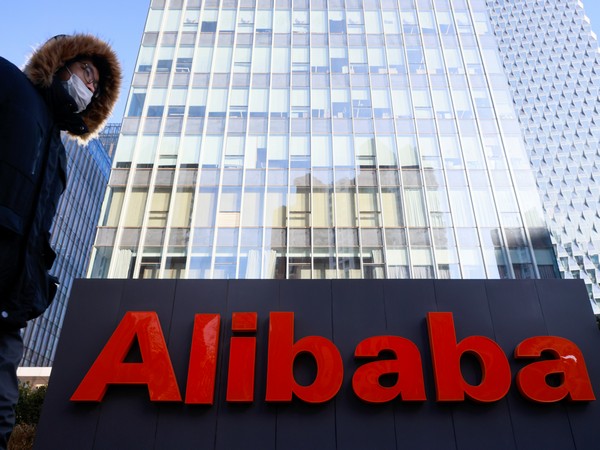
Hong Kong, March 30: Restructuring of the Alibaba Group has sent shares of the conglomerate soaring in New York and Hong Kong, as investors bet on the return of regulatory support for China’s tech industry and private businesses after more than two years of a brutal crackdown.
The nature of the overhaul, in which the internet conglomerate will split its business into six separate units, is a sign that Beijing’s campaign against Big Tech hasn’t fundamentally changed. Regulators still intend to reduce the monopolistic nature of tech giants and limit their power, even as they urge private companies to do their part to create jobs and boost a flagging economy.
The news of the restructuring came shortly after the return of co-founder Jack Ma to mainland China. Ma had been spending time overseas and otherwise keeping a low profile since the Chinese government began a fierce crackdown on the tech sector in late 2020.
“It appears that Alibaba’s break-up has been orchestrated by Beijing,” said Brock Silvers, chief investment officer for Kaiyuan Capital.
“This idea is reinforced by Jack Ma’s sudden reappearance, which now seems like a planned media event intended to boost market sentiment at a critical moment.”
News agencies reported that the “planned media event” worked. Shares in Alibaba, which has a market capitalization of USD 260 billion, soared 12 per cent in Hong Kong on Wednesday, following a 14 per cent surge on Wall Street overnight, leading the tech sector’s gains in the Asia Pacific.
Ma is seen as a symbol of China’s tech industry and a barometer of the Chinese government’s support for private business. His presence is perceived as evidence of a more supportive approach to the private sector, at a time when China’s economy badly needs growth.
In October 2020, the once high-profile entrepreneur criticized the country’s financial regulatory system for being too rigid and unfriendly to small businesses. As a result, the authorities shelved Ant Group’s planned USD 35 billion IPO at the last minute.
A sweeping regulatory crackdown on Big Tech followed, which later engulfed China’s most powerful private companies, wiping huge sums off their market value. Alibaba’s stock is still down 70 per cent from its peak just days before regulators abruptly pulled the Ant Group IPO.
But almost three years on, the dynamics have changed. The Chinese government is now facing significant economic challenges. It’s eager to shore up growth and reinvigorate confidence in the tech sector following its emergence from three years of strict Covid-19 controls.
Alibaba’s restructuring is “part of [Beijing’s] strategy to shore up confidence in the private sector,” said Hong Hao, chief economist for Grow Investment Group.
In a policy shift, Chinese leader Xi Jinping recently urged the government to support private businesses, while calling on entrepreneurs to play a role in boosting growth and tech innovation, so that China can better counter what he called “containment” and “suppression” from the West led by the United States.
Premier Li Qiang, a trusted ally of Xi who was confirmed as the country’s second top official this month, followed up by rolling out a series of measures intended to repair ties between the government and the private sector.
“For a period of time last year, there were some incorrect discussions and comments in the society, which made some private entrepreneurs feel worried,” Premier Li said at his first news conference earlier this month.
China may need Alibaba now, but it’s not nearly as powerful as it was, according to analysts.
The breakup appears to “curb the influence of tech titans,” Silvers said. “It would serve as a stark reminder of Beijing’s uncomfortable relationship with the private sector, despite recent reassurances.”
Beijing’s major concern is that private tech firms have become too big and powerful. During its years-long clampdowns, the government sought to reduce the monopolistic nature of many prominent tech companies, slapping them with big fines, banning apps from stores and demanding that some firms completely overhaul their businesses.
China still wants to control Big Tech. It’s just pulling different strings.
“[Alibaba’s restructuring plan] offers a way to limit monopoly power and platform sway,” Hong Hao, chief economist for Grow Investment Group said.
It could serve as a model for other Chinese tech giants going forward.
“Tencent is the obvious [one] next,” Hong said, adding that the social media and gaming giant has already started reducing its stake in portfolio companies, including food delivery company Meituan.
Investors and analysts have cheered Alibaba’s restructuring.
The move marks the most significant overhaul in the company’s 24-year history and will “unlock the value” of its various businesses, it said on Tuesday.
Alibaba’s business will be split into six units: domestic e-commerce, international e-commerce, cloud computing, local services, logistics, and media and entertainment.
The domestic e-commerce group, which includes Taobao and contributes to a majority of the company’s revenues, will remain a wholly-owned unit. The other five, meanwhile, will have their own CEOs and can pursue separate public listings.
“The market is the best litmus test, and each business group and company can pursue independent fundraising and IPOs when they are ready,” Alibaba CEO Daniel Zhang said in an email to employees.
Some analysts welcomed the move, believing it will lead investors to reassess the valuation of Alibaba.
Citi analysts said Tuesday their target price for Alibaba’s US-listed stock was USD 156 per share, which is nearly 60 per cent higher than Tuesday’s closing level.








































